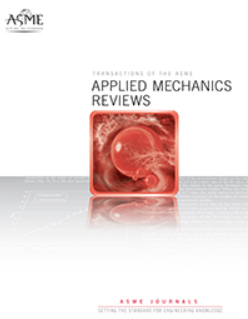A Survey on Non-Destructive Smart Inspection of Wind Turbine Blades Based on Industry 4.0 Strategy
IF 16.1
1区 工程技术
Q1 MECHANICS
引用次数: 6
Abstract
Wind turbines are known to be the most efficient method of green energy production, and wind turbine blades (WTBs) are known as a key component of the wind turbine system, with a major influence on the efficiency of the entire system. Wind turbine blades have a quite manual production process of composite materials, which induces various types of defects in the blade. Blades are susceptible to the damage developed by complex and irregular loading or even catastrophic collapse and are expensive to maintain. Failure or damage to wind turbine blades not only decreases the lifespan, efficiency, and fault diagnosis capability but also increases safety hazards and maintenance costs. Hence, non-destructive testing (NDT) methods providing surface and subsurface information for the blade are indispensable in the maintenance of wind turbines. Damage detection is a critical part of the inspection methods for failure prevention, maintenance planning, and the sustainability of wind turbine operation. Industry 4.0 technologies provide a framework for deploying smart inspection, one of the key requirements for sustainable wind energy production. The wind energy industry is about to undergo a significant revolution due to the integration of the physical and virtual worlds driven by Industry 4.0. This paper aims to highlight the potential of Industry 4.0 to help exploit smart inspections for sustainable wind energy production. This study is also elaborated by damage categorization and a thorough review of the state-of-the-art non-destructive techniques for surface and sub-surface inspection of wind turbine blades.基于工业4.0战略的风电叶片无损智能检测研究
风力涡轮机被认为是最有效的绿色能源生产方法,风力涡轮机叶片(WTBs)被认为是风力涡轮机系统的关键部件,对整个系统的效率有重大影响。风力发电机叶片的复合材料生产过程相当手工,这导致叶片存在各种类型的缺陷。叶片容易受到复杂和不规则载荷甚至灾难性坍塌的损害,并且维护费用昂贵。风力涡轮机叶片的故障或损坏不仅会降低寿命、效率和故障诊断能力,还会增加安全隐患和维护成本。因此,提供叶片表面和地下信息的无损检测(NDT)方法在风力涡轮机的维护中是不可或缺的。损伤检测是风力发电机组故障预防、维护计划和可持续性运行检测方法的重要组成部分。工业4.0技术为部署智能检测提供了框架,智能检测是可持续风能生产的关键要求之一。由于工业4.0推动的物理和虚拟世界的融合,风能行业即将经历一场重大革命。本文旨在强调工业4.0的潜力,以帮助利用智能检测实现可持续风能生产。本研究还通过损伤分类和对风力涡轮机叶片表面和次表面检测的最先进无损技术的全面回顾来阐述。
本文章由计算机程序翻译,如有差异,请以英文原文为准。
求助全文
约1分钟内获得全文
求助全文
来源期刊
CiteScore
28.20
自引率
0.70%
发文量
13
审稿时长
>12 weeks
期刊介绍:
Applied Mechanics Reviews (AMR) is an international review journal that serves as a premier venue for dissemination of material across all subdisciplines of applied mechanics and engineering science, including fluid and solid mechanics, heat transfer, dynamics and vibration, and applications.AMR provides an archival repository for state-of-the-art and retrospective survey articles and reviews of research areas and curricular developments. The journal invites commentary on research and education policy in different countries. The journal also invites original tutorial and educational material in applied mechanics targeting non-specialist audiences, including undergraduate and K-12 students.

 求助内容:
求助内容: 应助结果提醒方式:
应助结果提醒方式:


